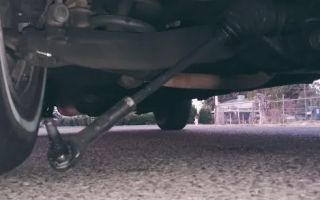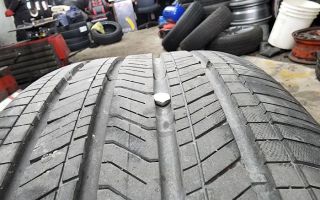How to Change a Flat Tire in Bad Weather Conditions: A Step-by-Step Guide
- Understanding the Challenge of Changing a Flat Tire in Bad Weather
- Preparing for a Tire Change in Bad Weather
- Step-by-Step Guide to Changing a Flat Tire in Rain or Snow
- Common Challenges When Changing a Flat Tire in Bad Weather
- When to Call Roadside Assistance for Tire Change Emergencies
- Why Choose Rescue & Towing for Emergency Tire Change Services
Understanding the Challenge of Changing a Flat Tire in Bad Weather
Imagine this: you're driving home from work, and suddenly, you feel that all-too-familiar thump-thump-thump from your tire. You’ve got a flat, and on top of that, it’s pouring rain or snowing heavily. Changing a tire in ideal conditions is already a challenge, but when the weather is bad, the task becomes much more difficult—and stressful. Whether you’re stuck on the side of the road during a rainstorm or in the snow, you’re dealing with more than just a flat tire. The weather adds elements of danger, discomfort, and urgency to the situation.
In this article, I’ll walk you through the steps of changing a flat tire in bad weather, share tips for handling the situation safely, and discuss when it’s best to call for professional roadside assistance. Knowing how to act quickly and correctly in these situations can save you time, money, and prevent unnecessary stress.
Preparing for a Tire Change in Bad Weather
Before you even think about changing a tire in inclement weather, preparation is key. Having the right tools and taking the necessary precautions can make the process much smoother, even when the weather isn’t on your side.

MR. TIRE INC.
2078 New York Ave, Huntington Station, NY 11746, USA
1. Keep Your Vehicle Well-Equipped
When driving in areas prone to bad weather, it’s crucial to keep your car well-equipped. Make sure you have a spare tire, a jack, a lug wrench, and a tire iron. If you’re in a particularly snowy or rainy climate, consider adding an emergency roadside kit that includes extra gloves, a flashlight, a blanket, and some high-visibility vests to ensure you're seen by other drivers.

MR. TIRE INC.
2078 New York Ave, Huntington Station, NY 11746, USA
2. Know Where Your Tools Are
In the chaos of a tire emergency, the last thing you want to do is search through your car for your tools. Familiarize yourself with where your spare tire, jack, and lug wrench are stored. If you’ve recently purchased a vehicle or switched to a new model, review your car’s manual to ensure you know how to access everything you need quickly.
3. Dress for the Weather
If you find yourself outside in a downpour or a snowstorm, dressing appropriately is crucial. Wear waterproof clothing, gloves, and boots to keep yourself dry and safe. It’s easy to forget how the weather can affect your ability to work efficiently, but keeping warm and dry will help you focus and finish the job faster.
Step-by-Step Guide to Changing a Flat Tire in Rain or Snow
Now that you’re prepared, let’s go through the step-by-step process of changing a flat tire in bad weather. The steps are similar to changing a flat under normal conditions, but the weather adds extra considerations for safety and comfort.
1. Find a Safe Location
The first thing you need to do is find a safe location to pull over. If you're on a highway or busy street, pull off to the shoulder and try to stop in a place where your car won’t be in danger of being hit by passing vehicles. Turn on your hazard lights to alert other drivers. Be cautious when it's raining or snowing, as visibility and traction can be compromised.
2. Set the Parking Brake
Before doing anything else, make sure to set your parking brake. This is crucial for your safety, especially in slippery weather conditions. The parking brake ensures your car stays stationary while you work on it.
3. Loosen the Lug Nuts
Use your lug wrench to loosen the lug nuts on the flat tire. Don’t remove them completely yet—just break the seal by loosening them a few turns. It’s easier to do this while the tire is still on the ground, and doing it now ensures you won’t have trouble once the car is lifted.
4. Jack Up the Car
Position the jack under the vehicle’s jacking point (usually near the wheel well). Ensure the jack is stable and securely placed. Slowly raise the car until the flat tire is off the ground. Be cautious in snowy or wet conditions, as the jack could slip on slick surfaces. Always double-check that the jack is stable before continuing.
5. Remove the Flat Tire
Once the car is raised, fully remove the loosened lug nuts and take off the flat tire. Be sure to keep the lug nuts in a safe place, as you’ll need them to attach the new tire. In bad weather, you may want to keep the lug nuts under your jacket or inside the car so they don’t get lost in the snow or rain.
6. Install the Spare Tire
Place your spare tire on the wheel hub and align the holes with the lugs. Carefully slide it into place. Once the spare is in position, screw the lug nuts back onto the bolts, but don’t tighten them completely yet.
7. Lower the Vehicle
Slowly lower the jack until the spare tire is touching the ground, but the full weight of the car isn’t resting on it yet. Tighten the lug nuts as much as possible, using a crisscross pattern for even pressure.
8. Fully Tighten the Lug Nuts
With the vehicle back on the ground, use the wrench to fully tighten the lug nuts. Make sure they are secure, but avoid overtightening them. This will ensure the tire is properly fastened without risking damage to the wheel or lug bolts.
9. Check Your Work
Once you’re done, double-check everything. Ensure the spare is secure and that the lug nuts are tightened properly. Clean up your tools, and safely store your flat tire and jack. It’s time to get back on the road!
Common Challenges When Changing a Flat Tire in Bad Weather
While the steps above cover the basics, there are a few common challenges you may encounter when changing a flat tire in bad weather. Here are some solutions to help you overcome these hurdles:
1. Slippery Ground
Wet, icy, or snowy ground can make it difficult to stabilize the jack. In these cases, try placing a rubber mat, piece of wood, or other stable material under the jack’s base to provide traction and prevent slipping.
2. Visibility Issues
If it’s dark or raining heavily, visibility can be a problem. Keep a flashlight or emergency light kit in your car to help you see clearly. Reflective gear is also a good idea for ensuring other drivers can see you.
3. Cold Hands
Cold, wet hands can make it hard to grip tools and work efficiently. Make sure to wear waterproof gloves to keep your hands dry and warm. This will also provide better grip and comfort.
When to Call Roadside Assistance for Tire Change Emergencies
While changing a flat tire is a handy skill to have, there are times when it’s best to call for professional roadside assistance. If the weather is extremely severe, you’re unable to change the tire due to safety concerns, or you don’t have the necessary tools, don’t hesitate to call for help.
Roadside assistance services like Rescue & Towing can quickly dispatch a technician to handle the tire change for you. This is especially useful if you're in a dangerous area or don’t have the strength or experience to perform the job yourself.
Why Choose Rescue & Towing for Emergency Tire Change Services
If you ever find yourself in need of emergency tire change services, Rescue & Towing is here to help. We specialize in roadside assistance, including tire changes, jump-starts, fuel delivery, and more. Our team is available 24/7, and we provide quick, reliable services even in the worst weather conditions.
For more information on our services or to request immediate assistance, visit Rescue & Towing today.























